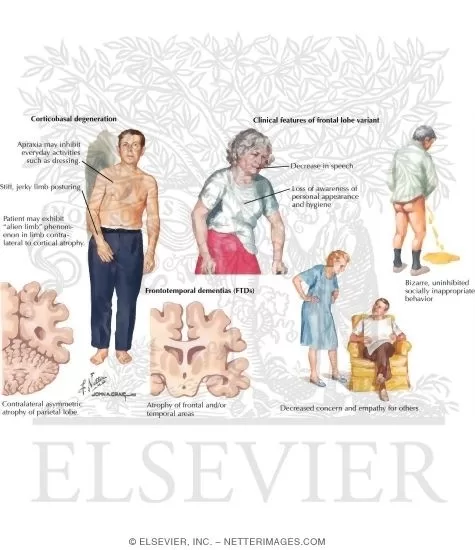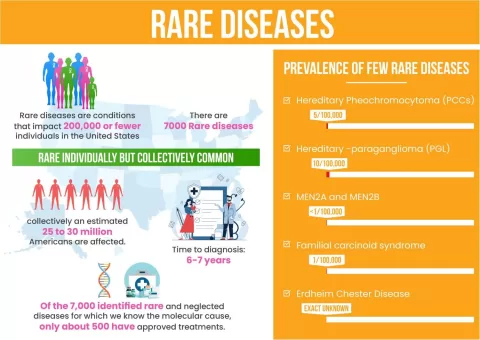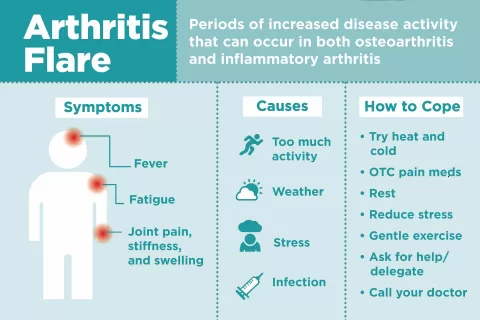Living with corticobasal degeneration (CBD) can be a daunting journey marked by challenges that touch every aspect of daily life. This progressive neurodegenerative disorder primarily disrupts motor functions and cognitive abilities, making managing symptoms of CBD an essential endeavor for both patients and caregivers. As individuals navigate the complexities of CBD, improving quality of life for CBD patients becomes a vital goal, enhancing their overall wellbeing. Support strategies, including physical and speech therapy and nutritional support for neurodegenerative diseases, play a fundamental role in this management. By understanding and embracing effective therapies for corticobasal degeneration, patients can find ways to preserve their quality of life and maintain a sense of independence amidst the difficulties.
Corticobasal degeneration, also referred to as CBD, is a rare neurodegenerative condition that profoundly affects both movement and cognitive function. Individuals living with this disorder often grapple with issues like muscle rigidity and cognitive decline, requiring tailored approaches to enhance their quality of life. Such approaches include various therapies designed for managing the debilitating symptoms associated with corticobasal degeneration. Alternative support strategies, including occupational and speech therapy, can significantly improve communication skills and functional difficulties. It is crucial for those affected by corticobasal degeneration to explore personalized care and management techniques to optimize their daily experiences.
Understanding the Symptoms of Corticobasal Degeneration
Corticobasal degeneration (CBD) manifests through a variety of neurological symptoms that can differ significantly among individuals. Patients often experience asymmetric muscle rigidity, tremors, and coordination issues, which are pivotal in understanding the progression of the disease. These symptoms hinder mobility and directly affect daily living activities, necessitating tailored management strategies to address individual needs.
Additionally, cognitive decline and behavioral changes frequently accompany the physical symptoms of CBD, complicating the patient experience. This cognitive impairment may include issues with memory, problem-solving, and judgment, increasing dependency on caregivers. Recognizing these symptoms early on can facilitate timely interventions and improve the management of both cognitive and physical aspects of the condition.
To effectively manage living with corticobasal degeneration, it’s important to remain vigilant about symptom onset and progression. Tracking these changes through regular assessments with healthcare providers can help in adjusting care plans and exploring new therapeutic options.
Therapies for Corticobasal Degeneration
There are several therapies designed specifically to alleviate the symptoms associated with corticobasal degeneration. Physical therapy emphasizes exercises that enhance balance, strengthen muscles, and improve mobility, which is crucial in preventing falls and maintaining independence. Tailored therapy programs can also adapt over time as symptoms evolve, ensuring ongoing support for movement issues.
In addition to physical therapy, speech therapy plays a crucial role in managing communication difficulties experienced by patients. Speech therapists provide exercises and strategies to aid both verbal expression and swallowing, which can deteriorate as the disease progresses. By improving communication abilities, individuals living with CBD are better equipped to engage with their families and healthcare providers, thus enriching their quality of life.
Improving Quality of Life for CBD Patients
Enhancing the quality of life for individuals living with corticobasal degeneration involves a multifaceted approach that considers both physical and emotional well-being. Supportive therapies, engaging in hobbies, and maintaining a social network can significantly alleviate feelings of isolation often experienced by patients. Regular social interaction helps foster relationships and encourages participation in community activities, which can elevate mood and foster a sense of belonging.
Additionally, a proactive approach to well-being can include lifestyle modifications such as nutrition and exercise. A diet rich in essential nutrients and balanced meals tailored for neurodegenerative diseases can impact health positively, while regular physical activity can combat rigidity and promote overall mobility. Together, these strategies can greatly mitigate some of the adverse effects of CBD and contribute to a better quality of life.
Nutritional Support for Neurodegenerative Diseases
Nutrition plays a crucial role in the management of corticobasal degeneration and other neurodegenerative diseases. A balanced diet can provide the nutrients necessary to support brain health and muscle function, helping to slow progression and improve overall health. Consulting with nutritionists who specialize in neurodegenerative conditions can lead to personalized dietary plans that address specific challenges faced by individuals with CBD.
For many patients, swallowing difficulties compromise their ability to consume a variety of foods, making nutritional support even more vital. Using smoothies, supplements, and easy-to-chew foods can help ensure that patients receive adequate nutrition, which is essential for both physical strength and cognitive function. Ongoing nutritional assessment and adjustment are paramount in maintaining health as the disease progresses.
Corticobasal Degeneration Support Strategies
Developing effective support strategies is critical for both patients and their caregivers coping with corticobasal degeneration. This includes creating a robust care network that encompasses healthcare providers, therapists, and support groups. Engaging with local or online support communities allows individuals to share experiences and coping strategies, fostering a sense of shared understanding and emotional support.
Education on CBD for caregivers is equally important. Equipped with knowledge about the disease and its progression, caregivers can manage expectations and adjust care strategies as needed. Understanding the available resources, such as counseling and respite care, can help alleviate the pressure faced by caregivers, allowing them to provide better support to those living with corticobasal degeneration.
Frequently Asked Questions
What are effective strategies for managing symptoms of corticobasal degeneration (CBD)?
Living with corticobasal degeneration necessitates a multi-faceted approach to symptom management. Effective strategies include engaging in regular physical therapy to maintain mobility, utilizing speech therapy to aid communication, and adhering to prescribed medications that alleviate pain and muscle spasms. Collaborating with healthcare professionals to customize these strategies based on individual needs is crucial for managing symptoms effectively.
How can caregivers improve quality of life for patients living with corticobasal degeneration?
Caregivers can significantly enhance the quality of life for individuals living with corticobasal degeneration by implementing supportive therapies such as physical and occupational therapy. They should also focus on creating a safe and accessible home environment, maintain a nutritious diet tailored to the patient’s needs, and engage in emotional support and counseling to navigate the challenges that arise from caregiving.
What therapies are available for enhancing the lives of those living with corticobasal degeneration?
Therapies for corticobasal degeneration include physical therapy to improve movement and balance, speech therapy for communication and swallowing difficulties, and cognitive behavioral therapy to address emotional challenges. These therapies collectively facilitate better daily living, empowering individuals to maintain independence and quality of life.
What role does nutritional support play in living with corticobasal degeneration?
Nutritional support is vital for individuals living with corticobasal degeneration as it helps to sustain overall health and address specific dietary needs associated with neurodegenerative diseases. Consulting with a nutritionist can guide the selection of a balanced diet rich in essential nutrients, which can aid in managing symptoms and enhancing general well-being.
Are there specific support strategies for coping with the effects of corticobasal degeneration?
Corticobasal degeneration support strategies encompass joining support groups for patients and caregivers, participating in therapies aimed at symptom management, and implementing cognitive and behavioral strategies to cope with emotional changes. These resources provide valuable community connections and emotional relief, enhancing resilience in facing the challenges of CBD.
| Aspect | Key Points |
|---|---|
| Understanding CBD | Corticobasal degeneration is a rare neurodegenerative disorder affecting motor functions and cognition. |
| Common Symptoms | Asymmetric muscle rigidity, tremors, balance issues, cognitive decline, and behavioral changes. |
| Management Strategies | Include physical therapy, speech therapy, medications, cognitive support, home modifications, and nutrition. |
| Role of Caregivers | Caregivers play a crucial role, and their well-being is important for effective support. |
| Conclusion Summary | A comprehensive management approach can significantly enhance quality of life for patients and caregivers. |
Summary
Living with corticobasal degeneration presents unique challenges that necessitate a multifaceted approach to management. By recognizing the importance of therapies such as physical and speech therapy, alongside the use of medications and cognitive support, individuals can work towards improving their quality of life. Furthermore, environmental modifications and nutritional support also play key roles in mitigating symptoms. Supporting caregivers is equally essential, as their well-being directly impacts the care rendered to those affected by CBD. Overall, a dedicated and informed approach can empower individuals and families to navigate the complexities of this condition effectively.
The content provided on this blog (e.g., symptom descriptions, health tips, or general advice) is for informational purposes only and is not a substitute for professional medical advice, diagnosis, or treatment. Always seek the guidance of your physician or other qualified healthcare provider with any questions you may have regarding a medical condition. Never disregard professional medical advice or delay seeking it because of something you have read on this website. If you believe you may have a medical emergency, call your doctor or emergency services immediately. Reliance on any information provided by this blog is solely at your own risk.






